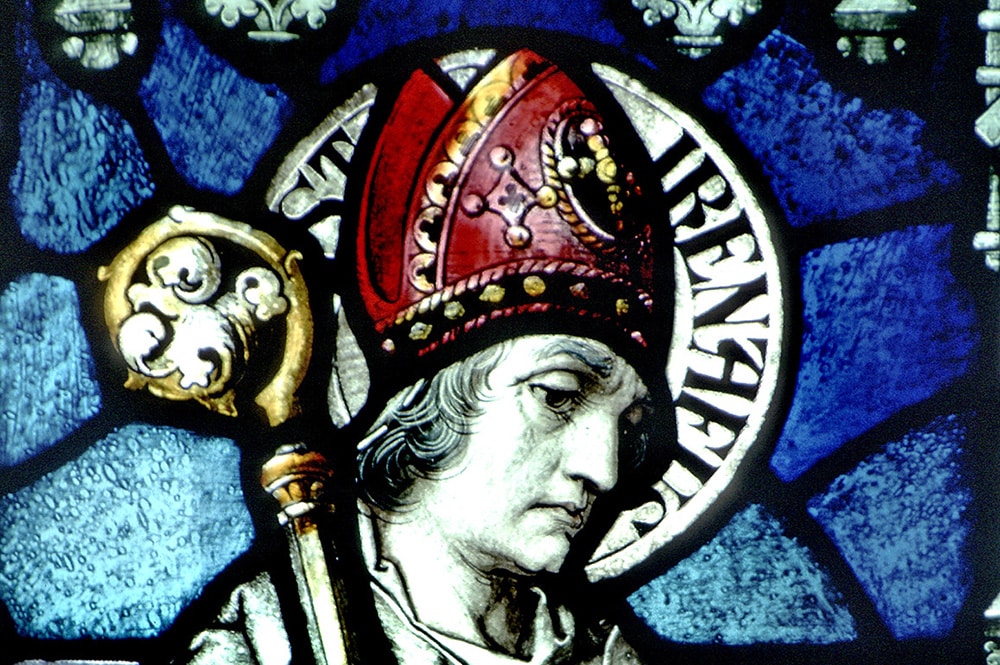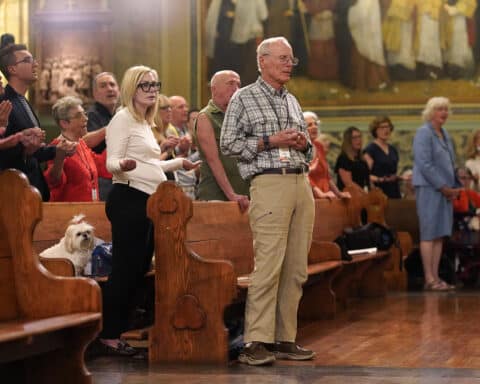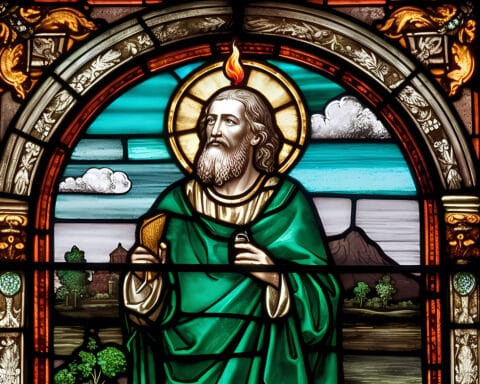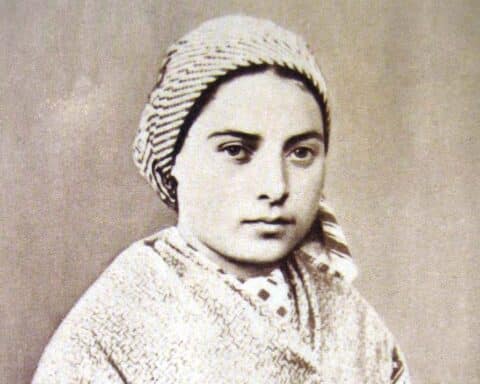On Nov. 12, the U.S. bishops expressed unanimous support that St. Irenaeus of Lyon be declared a Doctor of the Church. The vote came following a bid for the support of the U.S. bishops as requested by Cardinal Phillipe Barbarin of Lyon, France, in conjunction with the support of the French episcopal conference.
While there is no fixed process for declaring a Doctor of the Church, the Congregation for the Causes of Saints advised to proceed by obtaining universal approval from episcopal conferences. Once a broad coalition is formed, the decision is left to be made by Pope Francis.
There is an element of time sensitivity. In its request, the Archdiocese of Lyon said it hopes that a declaration of St. Irenaeus as a Doctor of the Church will take place during a yearlong celebration honoring him in the archdiocese in 2020.
Bishop Kevin C. Rhoades of the Diocese of Fort Wayne-South Bend, Indiana, chairman of the USCCB Committee on Doctrine, introduced the vote to the body of bishops. Speaking to Our Sunday Visitor, Bishop Rhoades said he was pleased that his peers “unanimously and enthusiastically” supported the movement to declare the Church’s newest doctor.
“It seems something of an oversight that this ‘first great Christian theologian’ has never been officially declared a Doctor of the Church,” Bishop Rhoades told Our Sunday Visitor. “This petition is perhaps a way to correct an oversight of history.”
Born in Asia Minor 1,900 years ago, St. Irenaeus was greatly influenced by St. John the Apostle through St. Polycarp, who was a follower of the apostle and mentor of St. Irenaeus. As a bishop, St. Irenaeus knew the pastoral importance of truth and manifestation in right teaching.
St. Irenaeus embodied the pastor’s role as a teacher and, therefore, was a great defender of Gospel truths amid heresies in the early Church, most notably gnosticism. St. Irenaeus also has left a major mark on the Church’s tradition. Bishop Rhoades noted the number of citations of St. Irenaeus in the texts of the Second Vatican Council totaled to 14, second only to St. Augustine.
Bishop Rhoades also pointed out the enduring relevance of St. Irenaeus’ teachings, even today.
“Such a declaration seems especially important today given the challenges we face, including the reemergence of gnostic ideas, divisions in the Church and growing disaffiliation from the Church,” he told Our Sunday Visitor.
Moreover, in his presentation to the bishops, Bishop Rhoades reiterated modern gnostic tendencies to promote “confusing views of what it means to be human. … The body-self dualism found in gender ideology is also a new kind of gnosticism we must reject,” he said.
“St. Irenaeus insisted that the Holy Spirit guarantees the Church’s fidelity to the transmission of the Faith,” Bishop Rhoades said. “For him, the Church and the Holy Spirit are inseparable.”
Expressing his own support for the move to declare St. Irenaeus a Doctor of the Church, Bishop Rhoades said, “I pray that the Holy Father will name St. Irenaeus a Doctor of the Church and that this will lead to greater study of his brilliant writings and deeper understanding of his fundamental insights about truth, the Holy Spirit and the Church, Scripture and Tradition and apostolic succession.
“St. Irenaeus’ defense of the true doctrine, his clear teaching of the Faith and his total devotion to his pastoral ministry make him a great model for bishops today,” he told Our Sunday Visitor. “St. Irenaeus’ teachings also can help all to understand and appreciate the necessity of the Church governed by bishops in apostolic succession to remain in the truth of the Gospel of Jesus.”
Michael R. Heinlein is editor of Simply Catholic. Follow him on Twitter @HeinleinMichael.





